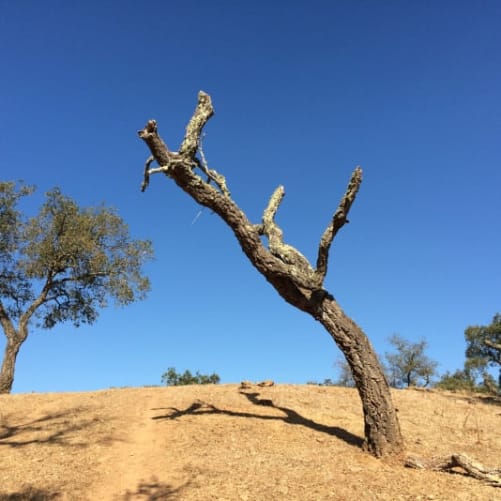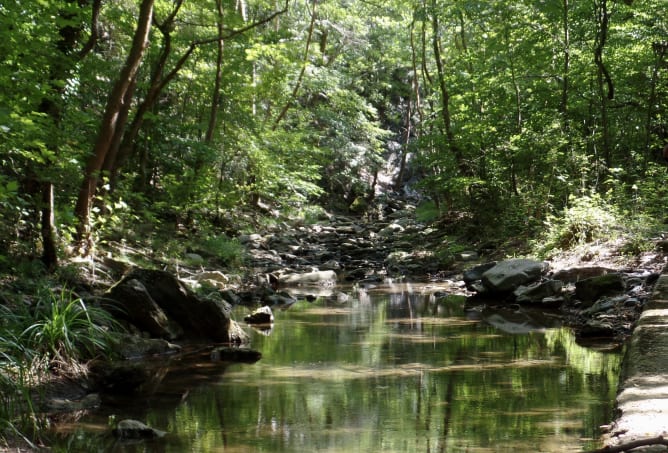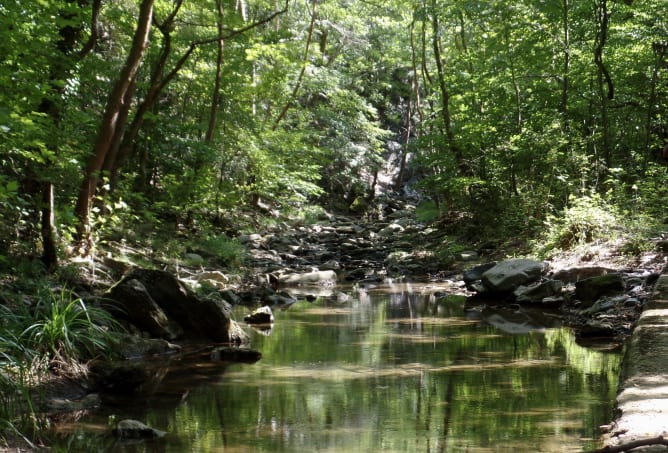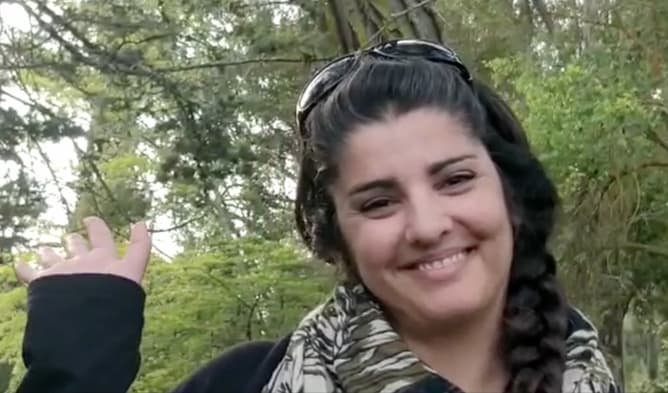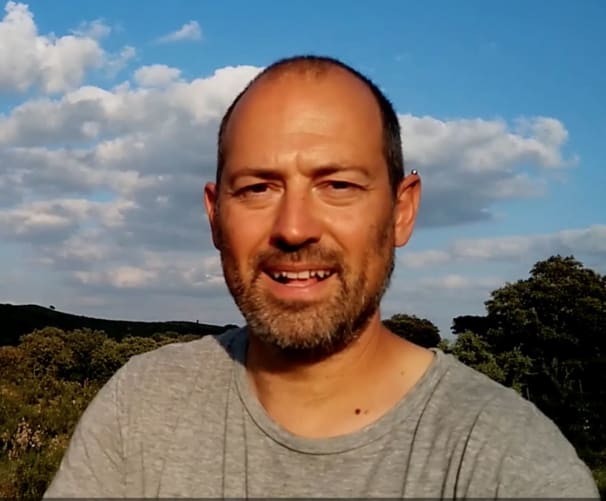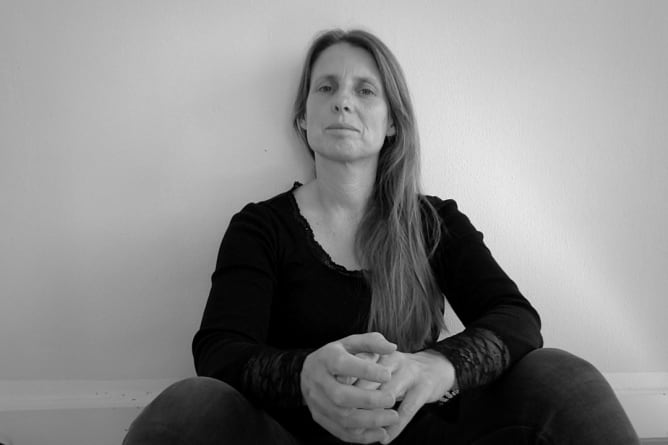A climate system for the Mediterranean region
Update: The first important milestone has been reached, many thanks to all who have helped to make this possible. We will now invest the additional funds mainly in planning the 20 hectares. In addition, it will allow us to expand our trial areas.
Our vision for the Mediterranean region: Heating off - air conditioning on: Through extensive forest plantation.
Sounds a bit fantastic, don’t you think? It is! Plants are air conditioners. By transpiring water they cool their environment. This effect comes into play when they are part of a multifaceted system, e.g. a forest.
In the south of Europe, huge areas are misused. To add to the normal practices of monoculture plantations, land is tilled once every year for fire prevention and to open new areas for grain production for animal feed. Unfortunately, this practices, heavily subsidised by EU funds, though bringing some benefits in the very short term, in the long term will actually increases the risk of fire and reduce direct land income, as bigger areas of soil get more degraded, and drier. These bare soils heat up the environment massively: they heat up strongly in the blazing sun and reflect the light radiation back into the atmosphere as heat radiation. Lack of vegetation also diminishes carbon sequestration.
Forests protect the soil from heating up, cool the environment, retain water, allow the groundwater level to rise, provide an habitat, protect against erosion and wind, convert biomass and feed people and animals. Large areas need to be established as agroforestry systems (a combination of agriculture and «edible» forest), so landscape can be regenerated while landowners and farmers can have direct income from the land by producing enough food for humans, farm animals and wildlife.
Pilot project in Mértola, Portugal
Rui, Isabel and I, SandraCarina, met in Mértola, in the southwest of Portugal. We are united by the vision of greening the land again by means of large-scale construction of agroforestry systems, giving the water the opportunity to circulate again and thus cooling the climate down. Isabel is an environmental engineer and grew up on a farm. She had to witness how her family’s land shed more and more water over the years, so that she can hardly keep any water in her 300 hectares today. As an environmental engineer who works in the city and has also dealt with permaculture and syntropic agriculture, among other methodologies, she is convinced that it is possible to make this dry piece of land arable again. Her family provided us with 20 hectares for a pilot project. It is important to us to manage this piece of land in such a way that it can also be transferred to bigger areas. For this purpose we strive for mechanized solutions.
For this reason, Rui, as an industrial designer and regenerative farmer, wants to combine regenerative agriculture and design: it is important to develop agricultural machines and technological solutions that do justice to a new type of management that, among other things, no longer compact the soil, and work against nature. Large, heavy, earth-floe-turning machines should be a thing of the past, even if the trend is currently pointing in another direction. Under these conditions, good water management makes it easier to set up the agro forest. Through training and further education with Sepp Holzer, Geoff Lawton and Ernst Götsch, vast experience in various water management projects abroad, I have acquired a sound knowledge in this area and have specialized in natural water management. I can contribute with this expertise to this project.
The main objectives of our project are: With different methods and, if possible, the materials that already exist (here, mainly stones and soil material), it is now necessary to slow down the rainwater superficial flow, meaning preventing it from leaving the land and wash away precious topsoil. By sowing grasses and legumes, plant seeds and trees, and pruning the few remaining plants, we can generate initial biomass, which will shade the ground, promote water retention, and, by its later degradation, generate nutrients to support all life types. We want to plant and set up a productive agroforestry system that ultimately does not require irrigation or fertilization, and, in its 300Ha, will generate enough food for farm-animals and make this farm profitable and sustainable in the long term. Our ultimate goal is to inspire and encourage other landowners and farmers by showing that it’s possible to generate income directly from the land, regenerate the landscape and live sustainable.
This is why we need your support
We have already started with the first planting experiments last autumn. To allow these trees and shrubs to survive the first summer in the blazing sun, they need regular care. They need to be watered and protected in regular basis. The grasses and legumes sown between the rows of trees need to be regularly cutted and the remains organized around the young trees until early summer so that the soil remains moist for longer periods (less irrigation needed) and the first soil build-up can take place. Up to now, we, together with friends in Portugal, have borne the costs of the project ourselves. The Corona situation has caught up with us, even in the furthest corner of Portugal. Isabel is in lockdown in the city where she works from home, and I have returned to Switzerland. In order for Rui to dedicate itself and be able to take care of the project by his own (preserving what is already there and collecting seeds in the region for next planting season), he needs a basic income, because his source of income has also dried out indefinitely.
We would also like to encourage you to pledge even if we already reached our target amount. All the funds collected above the target amount will be invested 100% in the further development of the project, being seeds and plants the main investment.
We would be very happy if you support us with a contribution of your choice! Thank you very much for this!

